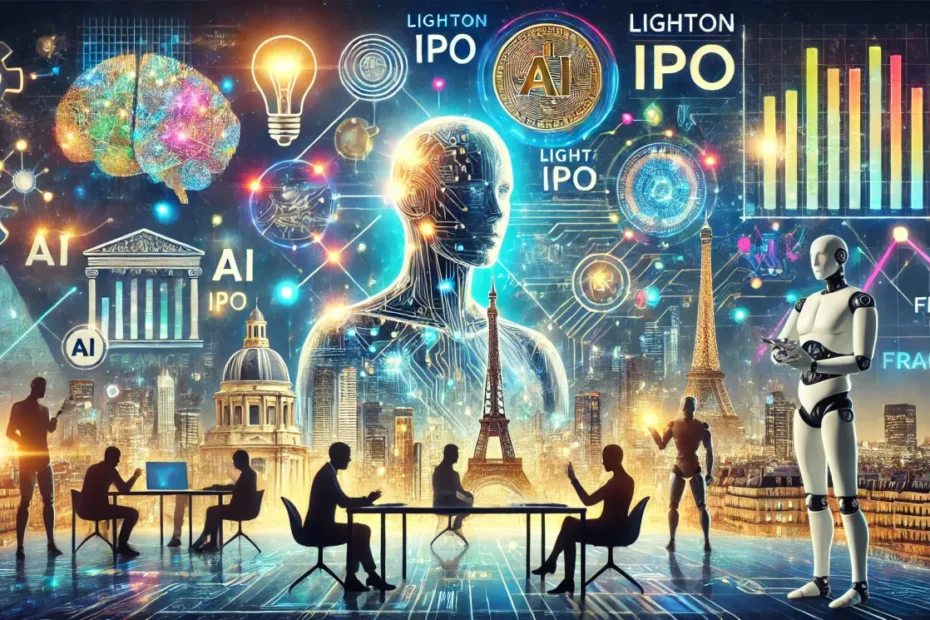French AI Startup Mistral AI is reportedly close to finalizing a massive new funding round that would value the company at $14 billion, according to Bloomberg. The deal, which is expected to involve a €2 billion investment, would place the Paris-based company among the most valuable tech startups in Europe, rivaling global leaders like OpenAI.
Founded just two years ago by former researchers from DeepMind and Meta, Mistral has quickly positioned itself as one of the most ambitious players in the AI race. Unlike many U.S.-based companies that keep their technology tightly controlled, Mistral is best known for developing open-source large language models. It also launched Le Chat, a chatbot designed specifically with European audiences in mind, reflecting the region’s focus on data privacy and local innovation.
A Meteoric Rise in Just Two Years
If the deal closes, this would be Mistral’s first major funding milestone since June 2024, when it was valued at €5.8 billion. Since its launch, the company has raised over €1 billion from a roster of influential backers, including Andreessen Horowitz and General Catalyst, both known for betting early on disruptive technologies.
The scale of this reported deal highlights how quickly Mistral has grown. Just two years ago, it was an unknown startup with a big idea: to build open and transparent French AI Startup that could compete with heavily guarded systems like OpenAI’s GPT series. Now, it appears to be securing its place as one of the few global challengers to the U.S. giants.
A Surge in European AI Investment
Mistral’s success isn’t happening in isolation. European AI startups are experiencing unprecedented momentum. Dealroom reports that in Q1 2025, European AI companies attracted 55% more investment year-over-year, showing how the continent is emerging as a serious contender in the global AI race.
For example, Sweden’s Lovable, an AI-powered coding platform, reached a $1.8 billion valuation in July 2025, only eight months after its launch. With at least 12 European startups crossing the unicorn threshold in the first half of 2025 alone, Europe’s AI scene is growing faster than ever.
Why This Matters

The AI industry is often described as a “winner-takes-most” market, dominated by U.S. and Chinese companies. However, Mistral’s rise shows that Europe is carving out its own lane. By embracing open-source AI development, Mistral provides a counterbalance to closed systems, potentially shaping the way businesses and governments across the region adopt AI tools.
This funding could also give Mistral the resources it needs to expand beyond Europe and scale its technology to match OpenAI and Anthropic. With €2 billion in fresh capital, the company could speed up product development, strengthen infrastructure, and attract top French AI Startup from around the world.
Looking Ahead
If the valuation is confirmed, Mistral would rank among the top European tech unicorns, giving the region a stronger foothold in the fast-evolving AI industry. Many experts predict that Mistral’s open-source strategy could spark broader adoption across startups and enterprises, especially in industries like finance, healthcare, and education where transparency and compliance are critical.
Looking further ahead, Mistral could help shape the global AI ecosystem by encouraging collaboration instead of competition over proprietary models. With rising interest from both investors and policymakers, Europe may finally gain an AI champion capable of balancing the dominance of Silicon Valley.
Past Milestones and Context
- June 2024 – Mistral was last valued at €5.8 billion after its funding round.
- 2023 – The company raised more than €100 million in seed funding, a record for a European French AI Startup at that time.
- Founders’ Background – The company was created by AI veterans from DeepMind and Meta, bringing cutting-edge expertise to Europe’s AI scene.
- Le Chat Launch – Mistral introduced its AI chatbot Le Chat, aimed at European users, marking a step toward consumer-facing products.
With this new chapter, Mistral is no longer just a fast-growing startup—it is on the verge of becoming a defining force in Europe’s technology future.
